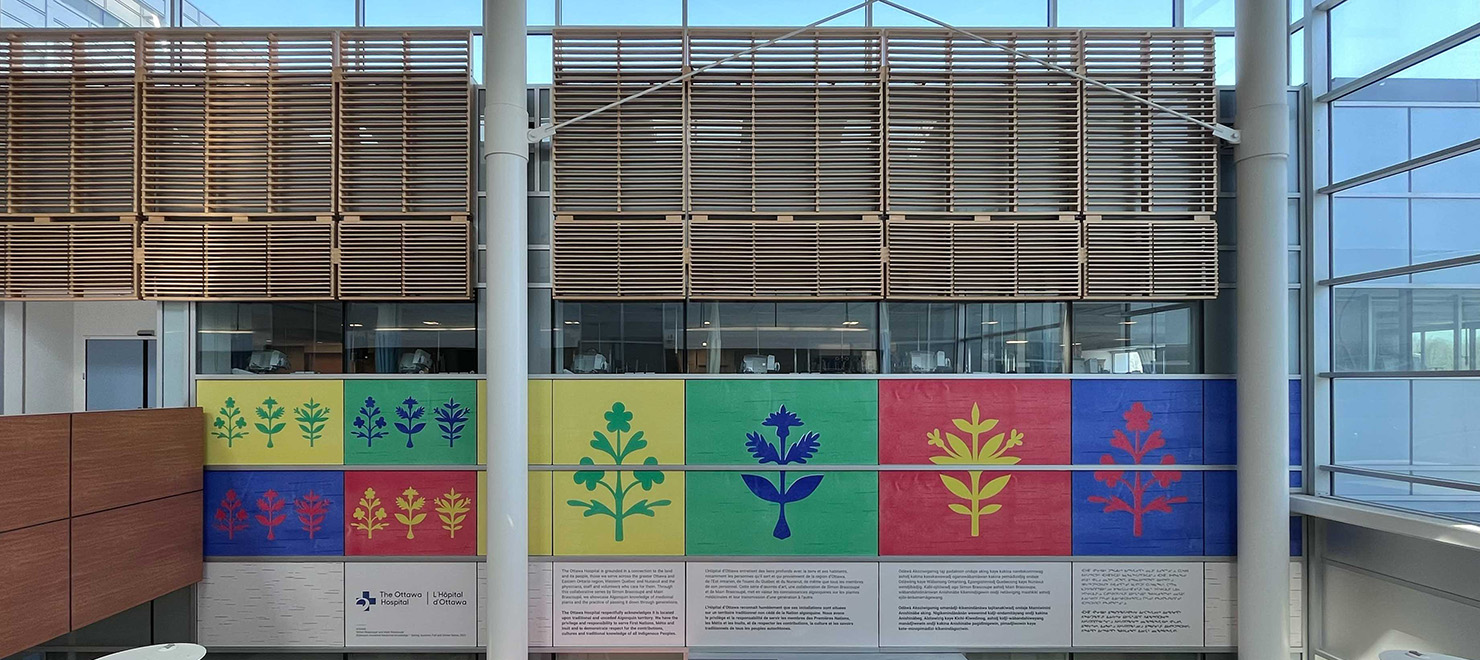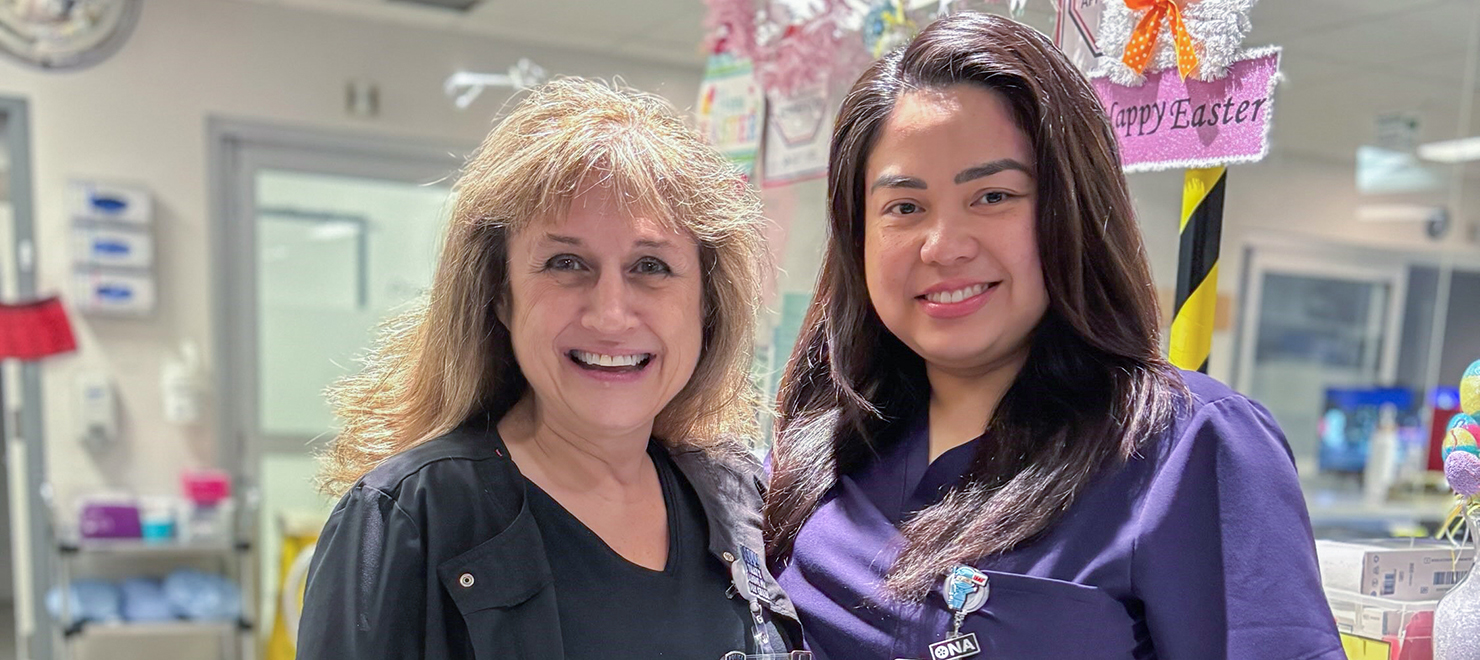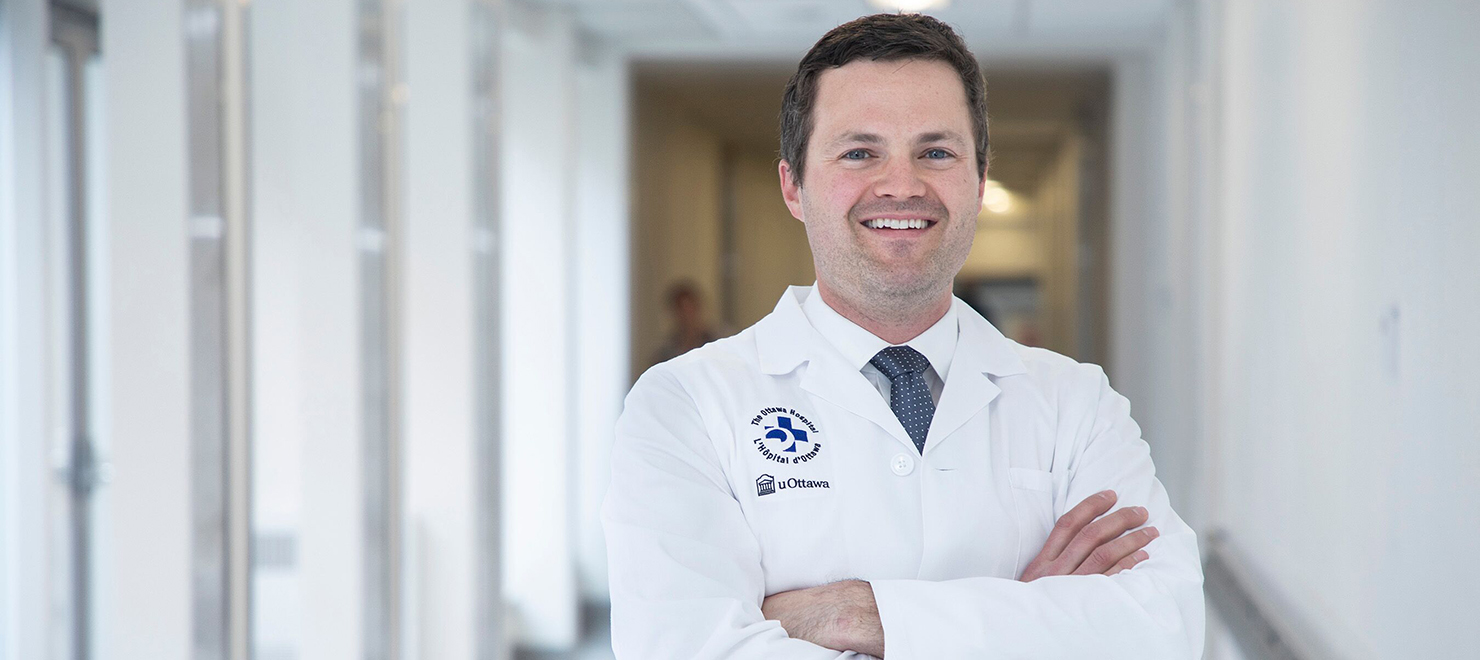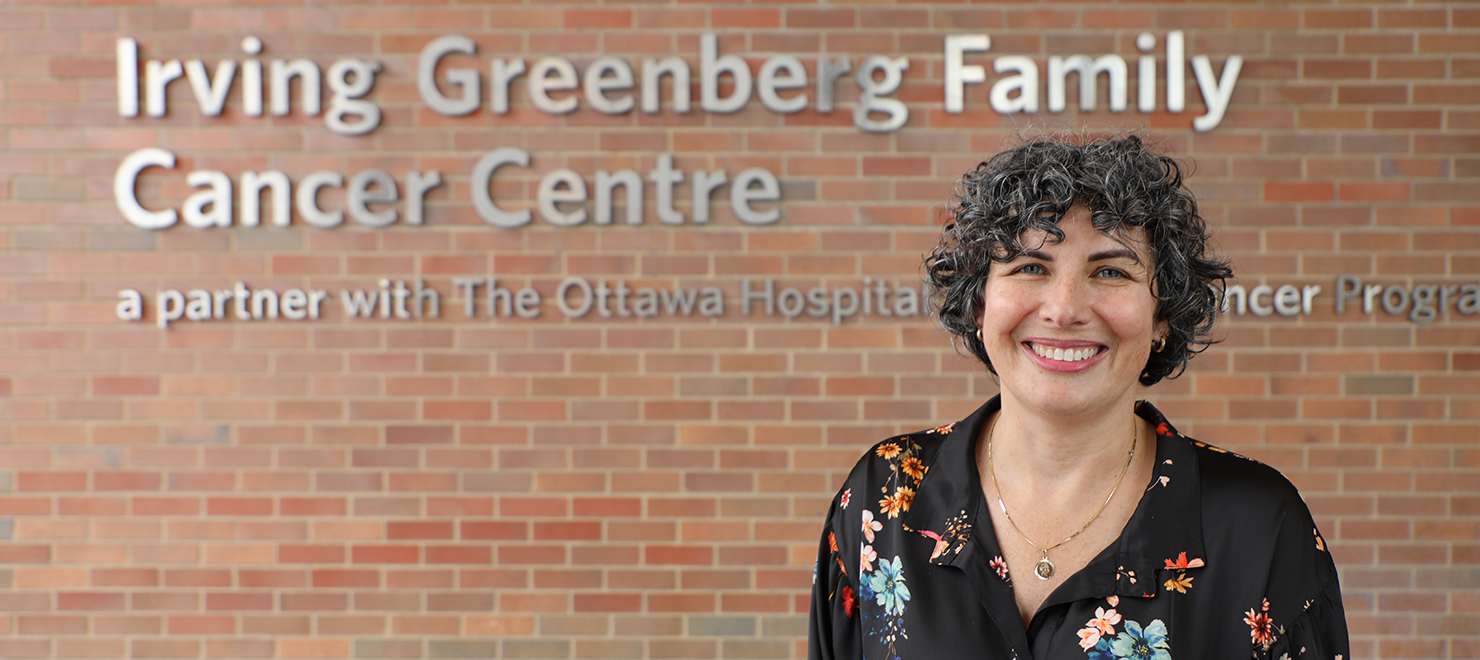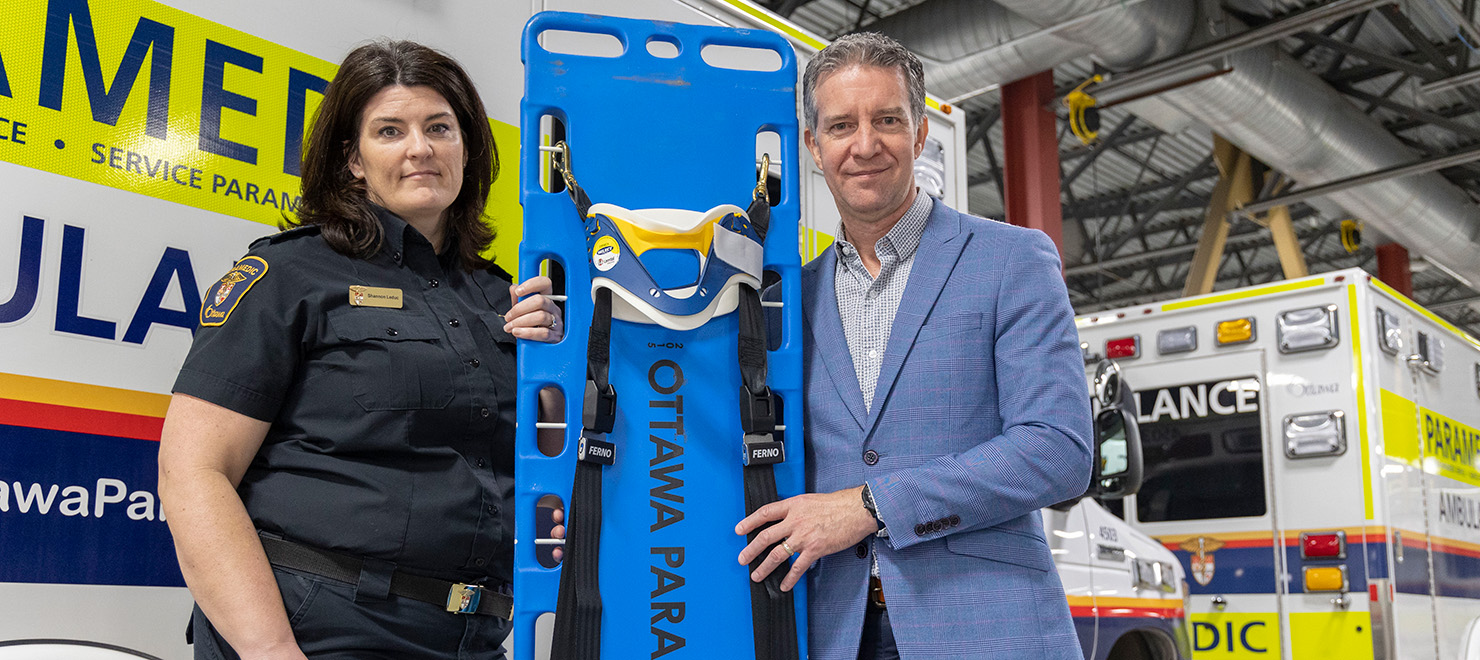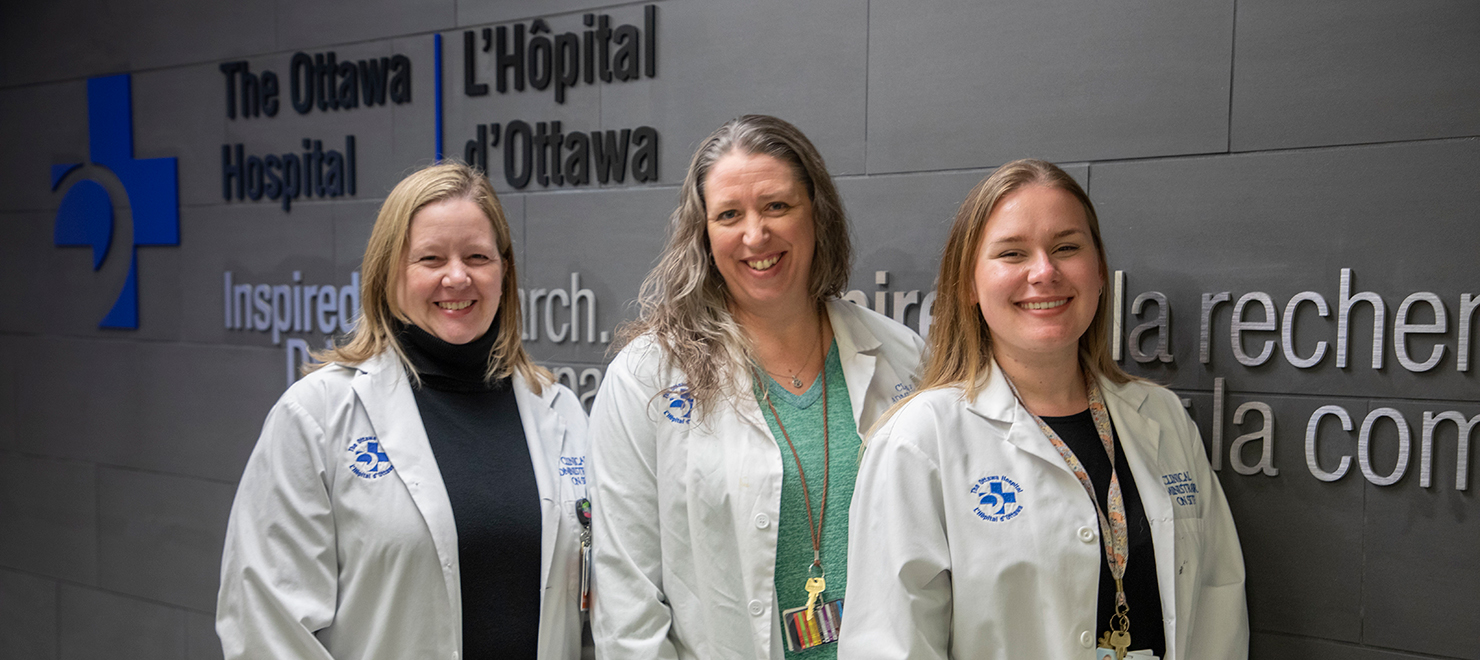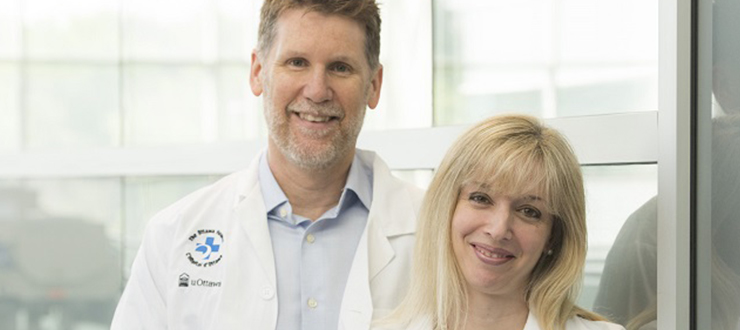
Drs. Robin Parks (left) and Jodi Warman Chardon are confident that, with neuromuscular experts working together, their research will translate into treatments for tomorrow.
Teresa Buffone knows too well how helpless it feels to have a loved one diagnosed with a neuromuscular disease. Her husband, Frank, died of myotonic dystrophy. Eight people in her family also have the genetic condition.
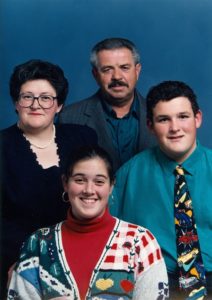
Eight people in Teresa Buffone’s family have the genetic condition for neuromuscular disease. Her husband, Frank, died of myotonic dystrophy.
Until now, patients have had to go to Montreal, Toronto, and even Miami to take part in clinical trials to help further the research in neuromuscular diseases and, hopefully, discover an effective treatment.
But, in May 2018, patients began going to The Ottawa Hospital NeuroMuscular Centre – one of the biggest neuromuscular centres in Canada.
“Finally, we’ll have a clinical trial centre for ALS and neuromuscular diseases right here in Ottawa, and people won’t have to travel far for these trials,” said Teresa, whose son was accepted into a clinical trial in Rochester, New York, but didn’t take part because it was too far to travel.
“We want to offer more than just a diagnosis,” said Neurologist Dr. Jodi Warman Chardon. “I could give people their diagnosis in the kindest, most compassionate way, but there need to be more treatments to change their lives for the better.”
More than 10,000 people in eastern Ontario are affected by neuromuscular diseases – medical conditions that get worse over time and impair how muscles and nerves work. Many of these diseases (such as ALS, myotonic dystrophy, or muscular dystrophy) weaken the muscles, cause difficulty with walking, swallowing, breathing, and cardiac processes, and are often fatal.
Dr. Warman Chardon knew that Ottawa is a hub for neuromuscular disease research, with 200 doctors, nurses and scientists (the most of any centre in Canada), including Dr. Michael Rudnicki, who is exploring stem cell treatments for Duchenne muscular dystrophy. Dr. Warman Chardon thought there was no reason why clinical trials that become the latest treatments couldn’t be offered in Ottawa. She teamed up with Senior Scientist Dr. Robin Parks, who was conducting research on neuromuscular diseases.
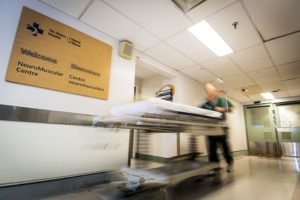
Funded by generous donor support, The Ottawa Hospital NeuroMuscular Centre opened its doors to patients in May 2018.
Their dream to have a centre that would bring these experts together in one place caught traction. In 2016, The Ottawa Hospital began raising funds to build a future centre of excellence. Thanks to incredible donor support, The Ottawa Hospital NeuroMuscular Centre opened its doors to patients in May. The centre will be one of the biggest neuromuscular centres in Canada.
“What’s exciting is it’s more than just a clinic – it’s a clinical research centre,” said Dr. Parks. “So the idea is to do research and get results that will then feedback to the patient to provide insight into new therapies for them.”
Drs. Warman Chardon and Parks are confident that, with neuromuscular experts working together, their research will translate into treatments for tomorrow.

Support patient care and research at
The Ottawa Hospital
You might also like…
A guide to services at The Ottawa Hospital for Indigenous patients and families
At The Ottawa Hospital, we are committed to providing culturally safe care for First Nation, Inuit and Métis patients and families. We are working with Indigenous partners to identify ways we can make your time in hospital more welcoming. Here are some of the ways we’re doing that now.
Novice nurses and their mentors learn and grow together
Discover how mentorships at The Ottawa Hospital facilitate a smoother transition into practice for novice nurses, allow experienced nurses to hone their leadership skills, and play a crucial role in retaining nurses from both generations.
Do you have a surgery coming up? Here are five “prehab” tips to help you recover faster
You’ve probably heard about rehabilitation, but what about “prehabilitation”? Prehab is all about getting your body and mind in top shape before surgery so you can enjoy a smoother, quicker recovery. Discover five essential prehab strategies from researcher Dr. Daniel McIsaac.
By thinking differently, this research team is improving the lives of people with cancer
Taking a different approach to clinical trials, the REthinking Clinical Trials (REaCT) program aims to answer some of the most important and practical questions that affect both patients with cancer and our health-care system. Find out what sets REaCT apart and makes the program so special to participants like Beth.
Does this backboard look comfortable to you?
Imagine this: You’re flat on your back, strapped tight to a rigid backboard, unable to move at all. Fortunately, this is no longer the reality for most low-risk trauma patients when they’re brought to hospital in our province. Find out how researchers at The Ottawa Hospital teamed up with paramedics across Ontario to make the journey a lot more comfortable.
Meet the team that brings CAOS every night
Don’t let the CAOS team’s name fool you. Find out how these nighthawks help make sure everything runs smoothly at our campuses and satellite sites after hours.


 To reset, hold the Ctrl key, then press 0.
To reset, hold the Ctrl key, then press 0.
